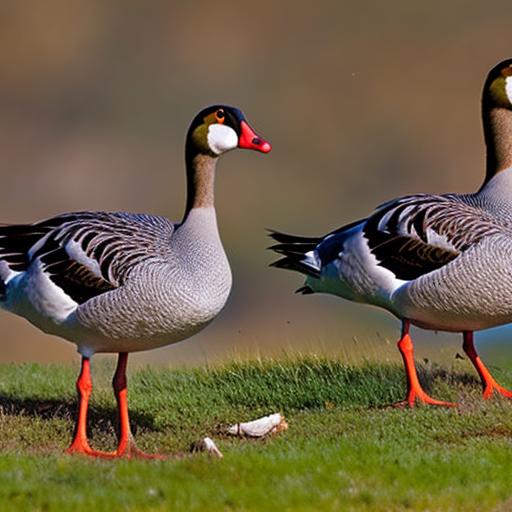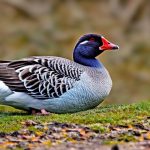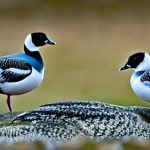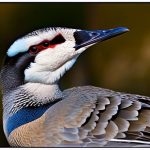Having geese on your property can be a nuisance. They can cause damage to your lawn, leave behind droppings that are unsightly and unsanitary, and even become aggressive towards humans or other animals. Finding a solution to this problem is important in order to maintain the cleanliness and safety of your property.
Key Takeaways
- Geese can be a problem on your property, causing damage and leaving behind droppings.
- Understanding geese behavior and what attracts them to your property can help in finding effective solutions.
- Natural deterrents like planting certain types of vegetation or using noise-making devices can help keep geese away.
- Installing physical barriers like fences or netting can prevent geese from entering your property.
- Using repellents like taste or scent deterrents can discourage geese from staying on your property.
Understanding the behavior of geese
Geese are attracted to your property for several reasons. One of the main reasons is the availability of food. Geese are herbivores and they feed on grass, plants, and grains. If your property has a lot of open space with lush grass or if you have a pond or lake nearby, it can be very attractive to geese.
Geese are also attracted to areas that provide them with shelter and nesting sites. They prefer open spaces with good visibility so they can keep an eye out for predators. They also like areas near water where they can swim and find food easily.
Natural deterrents
There are several natural ways to keep geese away from your property. One effective method is to plant tall grasses or shrubs around the perimeter of your property. Geese prefer open spaces where they have a clear line of sight, so planting tall vegetation can make your property less attractive to them.
Another natural deterrent is using noise-making devices such as wind chimes or scarecrows. The noise and movement created by these devices can scare away geese and make them feel uncomfortable.
Physical barriers
Installing physical barriers is another effective way to keep geese off your property. There are several types of physical barriers that you can use, such as fences, netting, or bird spikes.
Fences can be made from materials such as plastic, metal, or wood. They should be at least 3 feet high to prevent geese from easily jumping over them. Netting can be used to cover ponds or other bodies of water to prevent geese from swimming and feeding there. Bird spikes can be installed on ledges or other flat surfaces to prevent geese from landing and nesting.
When installing physical barriers, it is important to make sure they are properly secured and maintained. Regularly check for any damage or gaps that geese could exploit. Also, make sure the barriers are tall enough and have no gaps at the bottom for geese to squeeze through.
Repellents
There are several effective repellents that can be used to keep geese away from your property. One common repellent is a mixture of water and vinegar. This can be sprayed on grass or other areas where geese tend to gather. The smell of vinegar is unpleasant to geese and will deter them from coming back.
Another repellent is a mixture of water and cayenne pepper. This can be sprayed on grass or other areas where geese feed. The spicy smell and taste of the pepper will discourage geese from eating the grass.
When using repellents, it is important to follow the instructions carefully and use them in a safe manner. Avoid spraying repellents near water sources or areas where children or pets play.
Keeping your property clean

Keeping your property clean and tidy is an important step in discouraging geese from nesting on your property. Geese are attracted to areas with abundant food sources, so removing any spilled birdseed or other food can help deter them.
Regularly mow your lawn and remove any tall grass or weeds where geese could hide or nest. Also, clean up any standing water or puddles that could attract geese for drinking or bathing.
Decoys
Using decoys can trick geese into thinking your property is already inhabited by other geese. Place decoys in areas where geese tend to gather, such as near ponds or open spaces. The presence of the decoys will make geese feel uncomfortable and they will be less likely to stay or return to your property.
When using decoys, it is important to move them around regularly to make them appear more realistic. Geese are intelligent birds and can quickly learn that the decoys are not real if they remain in the same position for too long.
Training your dog
Training your dog to scare geese away can be an effective method of deterrence. Geese are naturally afraid of dogs and will avoid areas where they sense a dog’s presence.
To train your dog, start by introducing them to the areas where geese tend to gather. Use verbal commands or a whistle to signal your dog to chase the geese away. Reward your dog with treats or praise when they successfully scare the geese.
Having a dog on your property can also provide ongoing deterrence as geese will be less likely to settle or nest in an area where they sense the presence of a dog.
Seeking professional help
In some cases, it may be necessary to seek professional help to deal with a persistent goose problem. There are companies that specialize in goose control and can provide expert advice and assistance.
Professional help may be necessary if you have tried various methods without success or if you have a large property with a significant goose population. These professionals can assess your property, identify the root causes of the goose problem, and recommend appropriate solutions.
Keeping geese off your property can be challenging, but there are several effective methods that can help. Understanding the behavior of geese and implementing natural deterrents, physical barriers, repellents, and other strategies can help keep geese away.
It is important to try different methods and find what works best for your specific situation. Remember that persistence is key when dealing with geese, as they can be stubborn and adaptive. With patience and the right approach, you can successfully keep geese off your property and maintain a clean and safe environment.
If you’re looking for effective ways to keep geese off your property, you might also be interested in learning about the benefits of renting a chicken coop. Renting a chicken coop can not only provide you with fresh eggs but also help deter geese from invading your space. Poultry Wizard offers a variety of chicken coop options, including different door sizes and designs like the chicken coop in Chester, SC. Check out their article on renting a chicken coop to discover how it can be a practical solution for keeping geese away while enjoying the perks of raising chickens.
FAQs
What are some effective ways to keep geese off my property?
There are several ways to keep geese off your property, including using decoys, installing fencing, using repellents, and modifying the landscape.
What kind of decoys can I use to keep geese away?
You can use decoys that resemble predators, such as coyotes or foxes, to scare geese away. You can also use decoys that resemble other birds, such as swans or herons, to make geese think that the area is already occupied.
What kind of fencing is best for keeping geese out?
A fence that is at least 3-4 feet tall and has small mesh or wire spacing is best for keeping geese out. You can also install an electric fence or a fence with angled tops to make it more difficult for geese to land.
What kind of repellents can I use to keep geese away?
There are several types of repellents that can be effective in keeping geese away, including visual repellents (such as reflective tape or balloons), auditory repellents (such as loud noises or predator calls), and taste repellents (such as bitter sprays or garlic).
How can I modify my landscape to keep geese away?
You can modify your landscape by removing any sources of food or water that may attract geese, such as bird feeders or standing water. You can also plant vegetation that geese do not like, such as prickly or thorny plants. Additionally, you can create barriers, such as rocks or gravel, to make it more difficult for geese to land.
Meet Walter, the feathered-friend fanatic of Florida! Nestled in the sunshine state, Walter struts through life with his feathered companions, clucking his way to happiness. With a coop that’s fancier than a five-star hotel, he’s the Don Juan of the chicken world. When he’s not teaching his hens to do the cha-cha, you’ll find him in a heated debate with his prized rooster, Sir Clucks-a-Lot. Walter’s poultry passion is no yolk; he’s the sunny-side-up guy you never knew you needed in your flock of friends!







